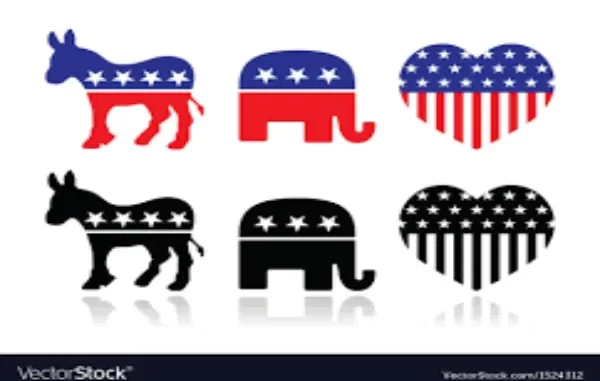
Political parties serve as linkage institutions by connecting citizens with their government and allowing for effective representation of the people’s interests in the legislative process. Parties provide citizens with a platform for expressing their views, allowing them to influence the policy-making process and providing a voice to the electorate.
They also provide a structure for competing interests to come together to form a governing majority and facilitate the development of policy. Through the establishment of platforms, nomination of candidates, and development of electoral strategies, political parties serve as a crucial link between the public and legislators.
How Political Parties Unify a Country Through Linkage Institutions
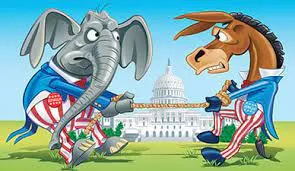
Political parties are important for unifying a country. They provide a way for citizens to express their political values and preferences through organized activities and represent their interests in the political process. Political parties act as linkage institutions, connecting citizens to the political process and government. By engaging citizens in the political process, political parties help to create a sense of national solidarity and cohesion.
Linkage institutions provide a means of connecting citizens to the government. Through political parties, citizens have an opportunity to participate in decision-making and to work with the government to craft policy solutions. Political parties also serve as a medium for citizens to express their views and opinions to the government. This allows for a more open and transparent political process, which can lead to greater public trust in the government.
Through their activities and platforms, political parties can play an important role in unifying a country. By connecting citizens to the political process and providing a platform for collective action, political parties can foster a sense of national identity and help to bridge the gap between different social groups. This can help to promote a sense of belonging and solidarity within the nation.
The Role of Political Parties in Facilitating Representation in Government
Political parties play a key role in facilitating representation in government. Through party affiliation, citizens are able to express their interests, opinions, and values to elected officials. They also provide a way for citizens to support their preferred candidates and policies during elections.
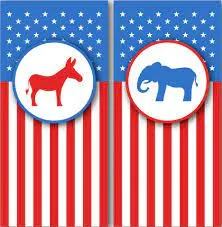
Party affiliation provides a platform for citizens to voice their opinions and gain representation. Political parties serve as a bridge between the electorate and elected officials. Through party affiliation, citizens can influence their elected representatives and advocate for policies they believe are important. In addition, political parties create a unified platform for citizens to express their ideals and beliefs.
Political parties also provide a way for citizens to support their preferred candidates and policies during elections. By joining a political party, citizens can help their chosen candidates by campaigning, fundraising, and voting. Political parties are also responsible for mobilizing voters and raising awareness of important issues. Through these activities, political parties give citizens their best chance of having their interests and concerns represented in government.
In conclusion, political parties play a vital role in facilitating representation in government. By providing a platform for citizens to express their opinions and support their preferred candidates and policies, political parties ensure that all citizens are represented in the political process.
Exploring the Impact of Political Parties as Linkage Institutions
Political parties have long been recognized as important linkage institutions between the public and government. They are often seen as a mechanism through which public opinion is expressed, thus providing an important source of accountability in democracies. This article will explore the impact of political parties as linkage institutions, discussing their role in elections, policymaking, and public opinion formation.

First, political parties play an essential role in elections. They are responsible for organizing and mobilizing citizens to support their candidate or party, thus influencing the outcome of the election. Parties also provide a platform for candidates to present their views and policies to the public. This allows voters to better understand the differences between the candidates and make informed decisions. Additionally, parties can provide access to resources such as money, which is important for a successful election campaign.
Second, political parties play a key role in policymaking. Parties have the power to control the agenda and shape the public discourse. This allows them to push their chosen policies and influence policy outcomes. Parties can also use their influence in the legislature to pass legislation and shape the legal framework. This helps to ensure that policies are implemented according to the party’s preferences.
Finally, political parties act as a conduit for public opinion formation. Parties can use their resources to shape public opinion by running campaigns, organizing rallies, and engaging in debates. They can also organize opinion polls to better understand the public’s views and use this information to influence their policies. This helps to ensure that the public’s views are taken into account when making policy decisions.
Linkage Institutions and the Function of Political Parties
Linkage Institutions and the Function of Political Parties Writing style: informative Writing tone: formal In the United States, political parties play a crucial role in linking the public to the government. They provide the public with a way to participate in the political process, and they serve to organize and integrate the activities of political actors.
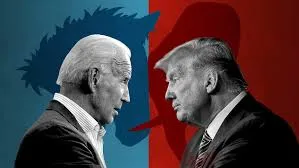
Political parties are often referred to as “linkage institutions,” because they link citizens to the government. They allow citizens to express their views and preferences through the voting process and help to coordinate the activities of elected officials. They also provide a platform for politicians to make their case to the public and to advocate for their policies. Parties serve several key functions in a democracy.
First, they provide a way for citizens to express their preferences in the political process by nominating candidates and creating platforms that reflect their views. They also provide a mechanism for organizing and mobilizing citizens to participate in the political process. Additionally, political parties facilitate the communication of information between the public and government, allowing citizens to stay informed on policy issues and to make their opinions known to their representatives.
Political Parties: Linkage Institutions for Representing the People
Political parties are an integral part of any democratic system, serving as a link between citizens and their government. They are important linkage institutions that represent the people and serve as a way for citizens to communicate their interests and concerns to their elected representatives.
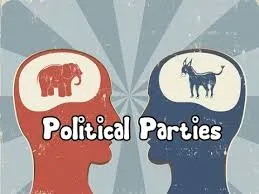
Political parties serve many roles, such as organizing and mobilizing public opinion, setting platforms and agendas, recruiting and nominating candidates, and forming governments. They can be a powerful force in a democracy, as they provide structure and direction to the political process. Through their platforms, candidates, and outreach efforts, political parties influence the public discourse and shape the policy choices available to the people.
Political parties can also be a powerful force in holding elected officials accountable to their constituents. Through their platforms, members, and advocacy efforts, they can pressure elected officials to act in the best interests of the people. Political parties also serve as a check on government power, ensuring that the government does not become too centralized or authoritarian.
It is clear that political parties serve as linkage institutions by connecting citizens to their government. Parties provide a platform for elected officials to represent their constituents’ interests, and for citizens to hold their representatives accountable for their actions. Through the organization of campaigns, rallies, and debates, parties also provide a means for citizens to inform themselves and become involved in the political process. As such, political parties are essential for a healthy and functioning democracy.






Leave a Reply